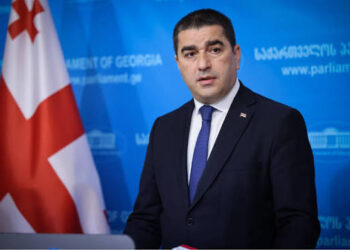Hundreds of years of civilized life have prompted us to create certain rules of public behavior, a fact which has proved to be helpful in our societal reality. Reasonable and mutually respectful rapport between law enforcement and the public, for instance, is a basis of legal and social context in general. International law, today set and held through documents like the United Nations Code of Conduct for Law Enforcement Officials, outlines the code of ethics for police, dedicated to human rights protection, proportionate use of force, and responsibility for people’s safety, especially during public upheavals, when only the balance of rights and restrictions for both police and the public can keep the desired order. The accepted standard suggests that the police should practice force only when strictly needed, and to the extent relative to the circumstance, so as to protect social dignity and sustain human rights, to remain strictly responsible for their actions, not to use force indiscriminately or disproportionately, to avoid arbitrary arrests, and to eschew violations of freedom of assembly. As such, the behavior of law enforcement during public commotions is a perfect test for a nation’s adherence to democratic values.
While Georgian police have made substantial steps forward in reforms, incidents during the recent demonstrations highlight the need for better commitment to globally recognized standards. The interaction between police and the community plays a decisive role in maintaining social order. Police officers are tasked with protecting citizens and ensuring public safety. However, when journalists and opposition leaders embarrass or disregard the police, it undoubtedly challenges their authority and creates a potentially perilous pattern, which can all too easily escalate to violence during public rallies.
Respect for law enforcement should start with influential figures like journalists and politicians. The discourteous actions of journalists and political figures in Tbilisi have contributed to situations where protesters have committed crimes and become the victims of punitive measures. Such actions send a message to the public, particularly to vulnerable youth, that it was acceptable to treat police officers with contempt and derision, thus instigating aggression, perpetuating disrespect to the state, escalating violence, setting unacceptable models of social behavior, endangering public safety, and embarrassing peaceful demonstrators.
Many of the protesters who are now facing sentences of up to several years in prison did not fully comprehend that their actions – hitting, insulting, throwing objects at police, and damaging public property – constituted a grave offence against the law. This lack of awareness should be ascribed to the often unreserved rhetoric of journalists and grandiloquence of opposition leaders who, through their public disrespect of law enforcement, were unable or unwilling to underscore the legal and moral boundaries of the protest behavioral model. Instead of educating the public on their rights and responsibilities during demonstrations, they fueled the tendency of disobedience, without regard for its legal consequences. Recent protesters all over Georgia may have believed that insulting or pushing police officers was merely an act of resistance, not appreciating that it was indeed a criminal offense; they perceived throwing objects, including sizable cobble-stones, at policemen, as a justified reaction to a supposed injustice. Yet it is a punishable act of violence under the law.
The failure of public figures to clarify these distinctions has led to calamitous results for many young people, who now find themselves in legal trouble. Police officers are used to being put in challenging conditions. Trying to maintain public order, they are in the first place obligated to protect citizens’ rights. Their role is a heavy one, particularly during public disturbances, where they are sandwiched between order and chaos. Disrespect directed toward them undermines their ability to perform these duties effectively, conducive to the fact of creating a hostile environment, within which trust is no longer a factor.
Respect between the public and law enforcement is a two-way street. Police must demonstrate professionalism, restraint, and fairness in their interactions with citizens, even in tense situations. However, this respect must be reciprocated by the public. When mutual respect is absent, the relationship deteriorates, leading to increased polarization between law enforcement and the public, a breakdown of trust, making effective policing more difficult, and increasing the risks to public safety during protests or public unrest. In actual democracy, constructive criticism is necessary on the part of the media and political forces, but it has to be executed wisely, so that hatred or violence is not triggered. The relationship between police and citizens is a subtle equilibrium of authority and respect for human rights, and the lessons in this delicate matter need to be learned in a fragile and still maturing democracy like that of Sakartvelo. As the saying has it, it is never too late to learn.
Op-Ed by Nugzar B. Ruhadze














